 |
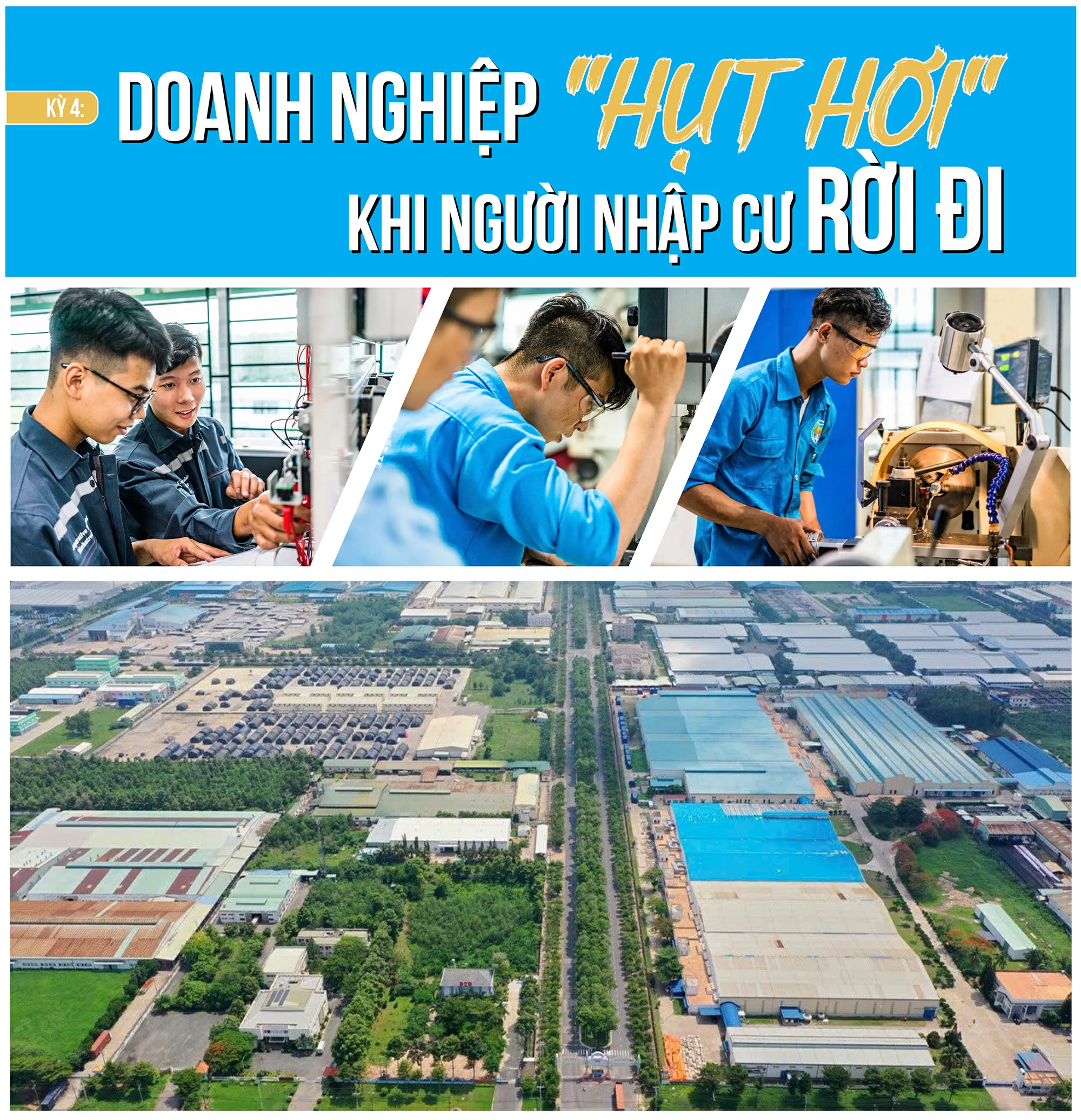 |
In the dynamic economic picture of Vietnam, the flow of immigrant labor from other provinces and cities plays the role of “blood vessels”, providing abundant human resources for industrial parks, factories and services, especially in major economic centers such as Dong Nai, Binh Duong or Ho Chi Minh City. However, when this flow shows signs of reversing or slowing down significantly, many enterprises are facing a serious situation of “running out of breath”.
Labor mobility, especially the departure of immigrant workers, can have significant impacts on businesses.
 |
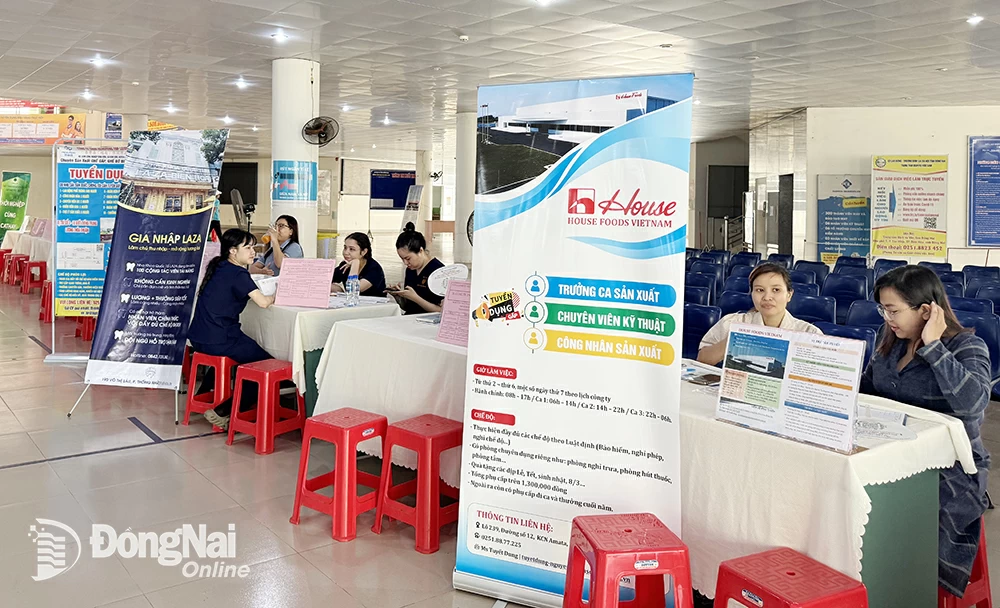 |
| Many job positions in Dong Nai lack workers coming for interviews at the job fair. Photo: Bich Nhan |
Reliance on migrant labor has become an inherent feature of many industries in developed provinces and cities. Bustling industrial zones are built on the cheap and readily available labor supply from rural areas or localities with more difficult economic conditions. As a result, enterprises can maintain competitive production costs and meet increasing production demands.
However, in recent years, many factors have been affecting the trend of labor migration, leading to a shortage of human resources and causing significant challenges for businesses. The consequences of immigrants leaving for businesses are not small. Many industries depend on immigrant labor to ensure the smooth operation of production and transportation stages. Disruptions in labor supply can lead to supply chain disruptions, increase logistics costs, make it difficult to meet market demand and reduce business competitiveness.
Mr. Nguyen Cong Doan, General Director of Daikan Vietnam Co., Ltd. (Amata Industrial Park, Bien Hoa City) shared that in order to fulfill orders in 2025 and "fill in" vacant positions due to workers taking leave after Tet, the company needs to recruit just over 20 more people but it is very difficult.
“A new worker with no expertise will be paid about 6.5 million VND/month. We have posted recruitment information on many channels, from online to offline, or through referrals from people in the company. In addition to the basic salary, we also increase allowances for travel or attendance... but it takes several months to recruit enough people,” said Mr. Doan.
 |
| Many units are recruiting a large number of workers in fields such as: garment, leather shoes, electronics, life insurance, financial services... with many job positions, especially unskilled labor, but still cannot recruit enough quantity. Photo: Bich Nhan |
This difficult recruitment situation is not only encountered in a few enterprises but is happening on a large scale. Many enterprises have had to post recruitment at the job exchange organized by the Dong Nai Provincial Employment Service Center in order to meet the recruitment quota. In 2024, this unit collected recruitment demand information from 871 enterprises with a recruitment demand of 94,562 workers. Or most recently, on April 25, 2025, 28 enterprises registered to participate in recruitment with a total demand of more than 3,800 workers, mainly unskilled workers, but only recruited about 400 people, only reaching nearly 6% of the demand.
According to records, recruitment needs are still mainly in the garment, footwear, and electronics industries. Even though there is a shortage of unskilled workers, there is an even greater shortage of skilled workers looking for jobs on the job market.
Ms. Yang Jia Yan, Human Resources Director, Topband Smart Dong Nai Co., Ltd., Long Thanh District (electronic components manufacturing) said that the good news for businesses in the first months of 2025 is that orders have increased, so the company is expanding production and needs to recruit about 2,000 workers in many positions such as: import-export staff, accountants, sales, quality team leaders, general workers... with salaries from 10-12 million VND/month.
“Because we need a large number of workers, we have done many things to recruit and recruit continuously. In addition to ensuring salary, insurance of all kinds, and allowances, we have offered a reward program for employees who introduce workers to work and for new workers from 1-2 million VND/person,” Ms. Yan added.
 |
 |
 |
| The current common situation is that there is no connection and common ground between the capacity, experience, and desires of employees and the recruitment and welfare requirements of enterprises. Photo: Bich Nhan |
According to the Department of Home Affairs, from the beginning of 2025 to now, in Dong Nai province, nearly 500 enterprises have registered to recruit with a demand for more than 24,000 workers. Enterprises are recruiting for many positions, most of which are unskilled workers. In addition to the need to recruit workers to expand production, many enterprises are also recruiting large numbers of workers to compensate for the number of workers who are on Tet holiday but do not return to work.
And to recruit workers, in addition to attractive salaries, many businesses are willing to recruit people over 45 years old, in good health and hard-working, but that is still not enough and difficult to recruit.
Ms. Mai Tuyet, Human Resources Department of Son Dong Nai Joint Stock Company, confided: “In the past, we only needed to hang a recruitment sign at the company gate and workers would come to submit their applications. There were more applications than recruitment needs, so businesses had the right to “choose”. But since the Covid-19 pandemic, even at the job exchange, there are more recruiters than job seekers. Among them, unskilled workers have the most “fluctuations” and it is also difficult to meet the recruitment target each year.”
According to representatives of many enterprises, at this time, for newly established companies under 3 years, recruiting a large number of workers is not simple. Meanwhile, the requirements for workers are quite easy, workers only need to know how to read, write, be hard-working and do not need to have any skills. In the segment of skilled workers and positions related to technology, enterprises find it even more difficult to "hunt" for people.
 |
| Businesses are having to compete to recruit workers, especially skilled or trained workers in fields such as engineering or automation. Photo: Bich Nhan |
Ms. Du Thi Thuy Tam, Head of Human Resources Administration, Asian Blending Company Limited, Long Thanh District, expressed that enterprises in industrial parks in Long Thanh and Nhon Trach are having to "compete" to recruit workers, especially skilled workers or workers who have been trained in fields such as engineering or automation.
“Enterprises also have to “launch” many “tricks” to attract workers. Working at the company, they have insurance, lunch allowances, and even recruit people aged 45, as long as they are still healthy enough to work. Even though they only recruit about 300 people, it has been “struggling” for many months and still not enough,” said Ms. Tam.
Mr. Nguyen Cong Doan added that Daikan Vietnam Co., Ltd. has been “present” in Dong Nai for 15 years, in which, from 2010-2017, the company’s applications and employees were mainly from the North and Central regions. However, from 2018 onwards, most of the employees applying for jobs are in Dong Nai or the provinces in the Southwest.
“I see a clear shift in the workforce from region to region in industrial parks. Out of 100 job applications, only about 6-7 applications are from the North and Central regions. The reason is that as soon as industrial parks were built in their homeland, they chose to stay in their hometown to reduce pressure,” Mr. Doan said.
According to the analysis of the Dong Nai Provincial Labor Federation, there are many reasons why workers "withdraw" from the labor market in industrial parks, but the core is still because income and living conditions are not enough to ensure a stable life in the long term.
“Living costs in industrial urban areas such as rent, electricity, water, food, and children's education have all increased, while workers' salaries and benefits have not increased proportionally,” analyzed Ms. Bui Thi Bich Thuy, Vice President of the Dong Nai Province Labor Federation.
In addition, Ms. Thuy said that some enterprises still do not have flexible compensation policies, lack cultural, sports facilities, and worker housing, making it difficult for workers to stay in industrial parks. In particular, after the Covid-19 pandemic, workers tend to shift jobs in a free direction such as: online sales, technology delivery, working at home or moving to provinces with lower living costs.
 |
 |
Source: https://baodongnai.com.vn/media/megastory/202505/loat-megastory-khat-lao-dong-giua-thu-phu-cong-nghiep-dong-nai-bai-4-doanh-nghiep-hut-hoi-khi-nguoi-nhap-cu-roi-di-7de18e8/




































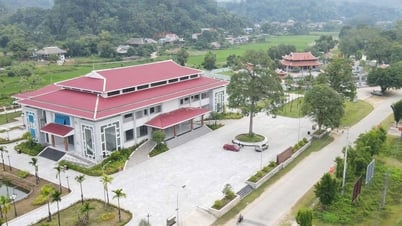



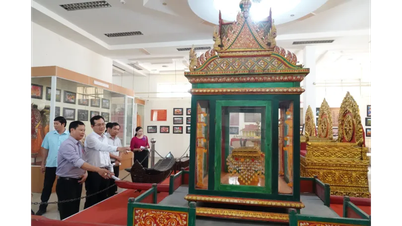



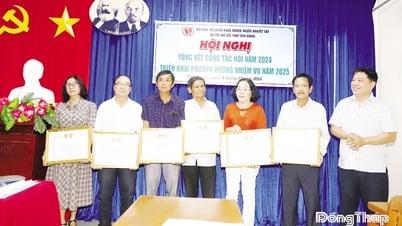
















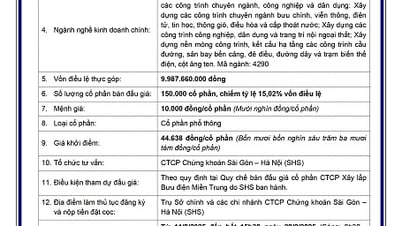
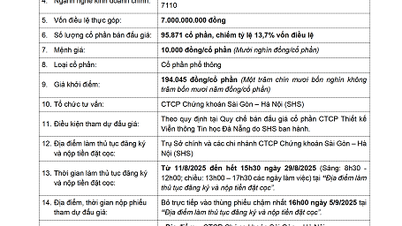




































Comment (0)